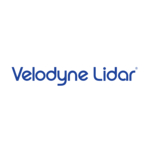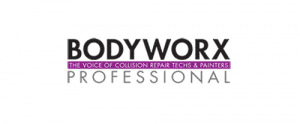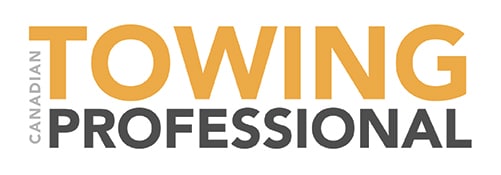Velodyne Encourages Government and Industry Collaboration to Advance Vehicle Safety
SAN JOSE, Calif.–(BUSINESS WIRE)–#VelodyneLidar—Velodyne Lidar, Inc. (Nasdaq: VLDR, VLDRW) today commended the U.S. Department of Transportation’s National Highway Traffic Safety Administration (NHTSA) plan to update to its New Car Assessment Program (NCAP). The NHTSA proposal would add four advanced driver assistance system (ADAS) capabilities to the NCAP, keeping pace with evolving safety technologies and providing much-needed information to consumers.
NCAP is the U.S. Government’s premier consumer information program for evaluating vehicle safety performance. The NHTSA proposal to add ADAS technologies to the NCAP includes pedestrian automatic emergency braking, lane keeping support, blind spot warning and blind spot intervention. The proposal asks for comments on how best to develop a NHTSA rating system for ADAS technologies. It also requests comments on potential approaches for conveying this information on the Monroney label, which is displayed on all new automobiles and provides important vehicle information to consumers.
“NHTSA’s proposal has the potential to save lives. Adding ADAS to NCAP is an excellent step forward in advancing safety features in cars and educating consumers on what those features can and cannot do,” said Mircea Gradu, PhD, Senior Vice President of Product and Quality, Velodyne Lidar. “Velodyne has long been engaged with NHTSA and other auto safety leaders on how to standardize ADAS features and establish a rating system that measures ADAS levels of performance. We are eager to work with the agency and all stakeholders on completing this important initiative.”
Velodyne has for years been dedicated to testing lidar sensors and developing safety metrics for ADAS systems. NHTSA’s new plans allow Velodyne to share the company’s findings, weighing in on the capabilities of lidar-centric ADAS systems which have superior performance after sundown, an advantage over current radar+camera-based ADAS solutions. Lidar is self-illuminating; its array of laser beams can accurately perceive the environment in darkness as well as in daylight. Lidar has long been a key sensor for autonomous driving and now Velodyne is applying lidar technology for ADAS vehicle safety, planning to offer software and lidar system solutions in increasing increments of safety and protection.
Five-Diamond ADAS Rating System
Velodyne has a long-standing commitment to fostering understanding of the safety and mobility benefits of advanced driving capabilities to consumer, business, government, public safety and community audiences. These efforts include developing a framework for a five-diamond rating system, aimed at establishing standardized performance assessments of ADAS features. The system is designed to encourage transparency in the marketplace and promote the maximum positive effect of ADAS technologies.
The five-level rating system utilizes diamonds to mark significant milestone achievements in vehicle system performance. The foundational ADAS technologies included in the five-diamond rating system are adaptive cruise control, lane keep assistance, automatic emergency braking, automatic emergency steering and blind spot monitoring.
Velodyne has presented the proposed system to encourage refinement and quantification of the performance descriptors to organizations that include NHTSA, SAE International, Insurance Institute for Highway Safety (IIHS), National Transportation Safety Board (NTSB) and International Alliance for Mobility Testing and Standardization (IAMTS). Velodyne developed a white paper on the rating system, called “An ADAS Feature Rating System: Proposing a New Industry Standard.”
Velodyne envisions the ADAS assessment system results can be incorporated into the Monroney label. Velodyne has developed a proposed ADAS rating label for government and industry review. It is similar to the current NHTSA-developed crash-worthiness label and can be used to educate consumers on vehicle ADAS capabilities before they make car purchases.
Improving ADAS to Reduce Nighttime Dangers to Pedestrians
Velodyne has also called for increased testing of ADAS performance in dark nighttime scenarios. This expansion would address a gap in current testing protocols, which primarily look at daytime conditions and largely overlook the risks to pedestrians from ADAS features that perform poorly in dark nighttime conditions.
Over 6,000 pedestrians are killed every year in traffic-related crashes in the United States with the vast majority of fatalities occurring in dark conditions, per NHTSA reports. Current ADAS, with pedestrian automatic emergency braking (PAEB) that utilizes camera and radar technology, frequently fail to protect pedestrians in dark conditions according to independent testing by NHTSA and the American Automobile Association (AAA).
To reflect real-life conditions, Velodyne proposes expanding PAEB testing protocols to include tests conducted in dark nighttime conditions. This change would protect the public and provide consumers useful information on the capabilities and limitations of different pedestrian detection systems.
This proposal is addressed in a Velodyne white paper, “Improving Pedestrian Automatic Emergency Braking (PAEB) in Dark, Nighttime Conditions.” The white paper also includes the results of nighttime PAEB tests conducted by Velodyne. The tests evaluated a highly-rated PAEB system using camera and radar-based technology and Velodyne’s PAEB system that uses Velodyne’s Velarray H800 sensor and Vella™ software. In these nighttime conditions, the camera and radar-based PAEB system failed in all five scenarios while the lidar-based system avoided a crash in every situation tested.
About Velodyne Lidar
Velodyne Lidar (Nasdaq: VLDR, VLDRW) ushered in a new era of autonomous technology with the invention of real-time surround view lidar sensors. Velodyne is the first public pure-play lidar company and is known worldwide for its broad portfolio of breakthrough lidar technologies. Velodyne’s revolutionary sensor and software solutions provide flexibility, quality and performance to meet the needs of a wide range of industries, including autonomous vehicles, advanced driver assistance systems (ADAS), robotics, unmanned aerial vehicles (UAV), smart cities and security. Through continuous innovation, Velodyne strives to transform lives and communities by advancing safer mobility for all. For more information, visit www.velodynelidar.com.
Forward Looking Statements
This press release contains “forward looking statements” within the meaning of the “safe harbor” provisions of the United States Private Securities Litigation Reform Act of 1995 including, without limitation, all statements other than historical fact and include, without limitation, statements regarding Velodyne’s target markets, new products, development efforts, competition. When used in this press release, the words “estimates,” “projected,” “expects,” “anticipates,” “forecasts,” “plans,” “intends,” “believes,” “seeks,” “may,” “will,” “can,” “should,” “future,” “propose” and variations of these words or similar expressions (or the negative versions of such words or expressions) are intended to identify forward-looking statements. These forward-looking statements are not guarantees of future performance, conditions or results and involve a number of known and unknown risks, uncertainties, assumptions and other important factors, many of which are outside Velodyne’s control, that could cause actual results or outcomes to differ materially from those discussed in the forward-looking statements. Important factors, among others, that may affect actual results or outcomes include Velodyne’s ability to manage growth; Velodyne’s ability to execute its business plan; uncertainties related to the ability of Velodyne’s customers to commercialize their products and the ultimate market acceptance of these products; the uncertain impact of the COVID-19 pandemic on Velodyne’s and its customers’ businesses; uncertainties related to Velodyne’s estimates of the size of the markets for its products; the rate and degree of market acceptance of Velodyne’s products; the success of other competing lidar and sensor-related products and services that exist or may become available; Velodyne’s ability to identify and integrate acquisitions; uncertainties related to Velodyne’s current litigation and potential litigation involving Velodyne or the validity or enforceability of Velodyne’s intellectual property; and general economic and market conditions impacting demand for Velodyne’s products and services. Velodyne undertakes no obligation to update or revise any forward-looking statements, whether as a result of new information, future events or otherwise, except as required by law.
Contacts
Investor Relations
Andrew Hamer
Chief Financial Officer
InvestorRelations@velodyne.com
Media
Landis Communications Inc.
Sean Dowdall
(415) 286-7121
velodyne@landispr.com












